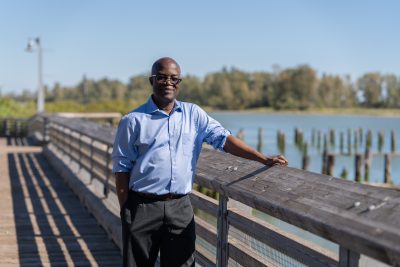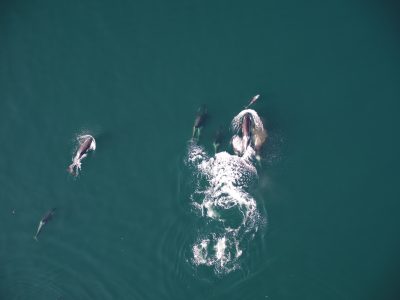Following manatees across changing coastlines
A special focus on Lesser-Known Marine Mammals
Collectivizing Indigenous Knowledge: Reflections on the Taikura Tri-Academy Indigenous Summit
Centre for Indigenous Fisheries MSC student Kahsennarò:roks Deom attended the Taikura Tri-Academy Indigenous Summit in Aotearoa (New Zealand).
Not all waves are created equal
It was found that when elevated water levels and the right wave direction line up, inundation risk jumps. This is particularly true during El Niño, when regional sea level sits higher.
Dr. Rashid Sumaila appointed to the Nature Conservancy’s Global Board of Directors
“Dr. Sumaila’s groundbreaking research and advocacy have been instrumental in shaping international ocean policy, including the historic High Seas Treaty,” said Jennifer Morris, CEO of The Nature Conservancy.
Breaking down research silos to understand a shifting Salish Sea
The Sentinels of Change Alliance shows what’s possible when collaboration is a foundation, not an add-on
Orcas and dolphins seen hunting together for the first time
Canadian researchers capture rare video of killer whales and dolphins working together to forage salmon off B.C. coast, suggesting the two species have forged a co-operative relationship
Coral Reef Survival: Depth, Marine Protected Areas, and Seascape Structure Are Key
Living corals are more likely to survive and thrive when found in deeper water, within Marine Protected Areas (MPAs), or in compact reef patches
Marine heatwaves quietly rewire ocean food webs
These bursts of extreme ocean heat are also reshaping the entire structure and function of marine food webs, with consequences that can last years after the water cools
Dr. William Cheung inducted as a Fellow of the Royal Society of Canada
On Friday, November 14, 2025, Dr. William Cheung, professor and Director of the Institute for the Oceans and Fisheries, was inducted into the 2025 cohort of Royal Society of Canada (RSC) Fellows.









